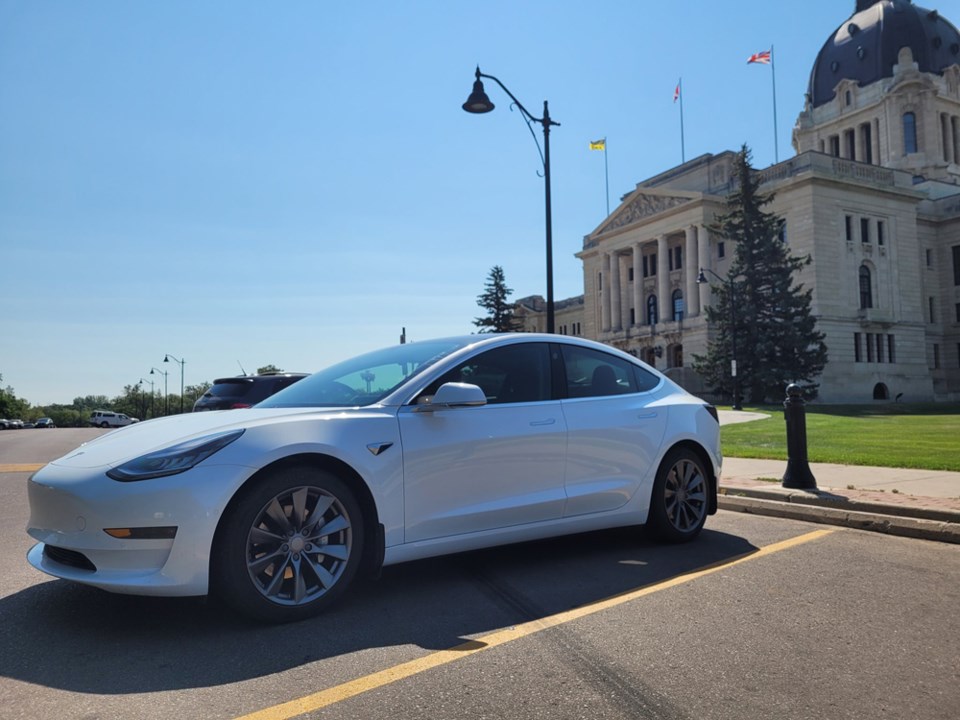I was seriously considering an electric vehicle (EV) to replace my aging Nissan Pathfinder. Since I drive over 100 km on a typical workday, an EV would have helped me save money.
But my problem was that I could not afford to buy an EV. As David Olive in the Toronto Star, the average EV is about 15 per cent higher than the average Canadian new car price of $66,000. This is beyond me.
One possible option was a Chinese EV. The cheapest Chinese EVs sell for one-third or less of the price of a North American counterpart. For the last three decades, the leading Chinese EV automaker, BYD (“Build Your Dreams”), has been working to master the art of low-cost production, and its efforts are bearing fruits.
An example is the Seagull, a small hatchback made by BYD. The Seagull’s base price is about $13,000, compared with $54,000 for Ford Motor’s Mustang Mach-E, one of the less expensive EVs in the North American market, Olive wrote.
My dreams are now under threat, possibly forcing me to continue with my Pathfinder for many more years.
Last week, Deputy Prime Minister and the federal Finance Minister Chrystia Freeland announced the start of a 30-day public consultation period – the first stage before Canada can impose additional tariffs on Chinese EVs. Currently, a 6.1 per cent tariff is levied on Chinese EVs imported into the country. Some say it may go up to 100 per cent.
Bloomberg reported that Freeland said the government will also examine changes to the list of electric vehicles eligible for federal consumer incentives and “broader investment restrictions in Canada” for the EV industry.
“All possible tools are on the table,” she emphasized.
Speaking at a news conference, Freeland said Canada’s auto industry is “facing unfair competition from China’s intentional, state-directed policy of overcapacity that is undermining Canada’s EV sector’s ability to compete in domestic and global markets.”
Canada has been under pressure to co-ordinate with the Group of Seven allies on China’s trade policy. The White House unveiled plans in May to nearly quadruple U.S. tariffs on Chinese-manufactured electric vehicles, up to a final rate of 102.5 per cent, while the European Union also plans to increase tariffs, taking those levies as high as 48 per cent on some vehicles.
With a joint review of Canada’s free trade agreement with the U.S. and Mexico coming up in 2026, business groups have urged Trudeau’s government to ensure Canada isn’t seen as a side door for cheap Chinese goods into North America.
The Trudeau government is also faced with domestic opposition to importing Chinese EVs into the country. The Canadian auto industry has been pushing the government to hike tariffs to protect domestic jobs and wages, arguing that China’s EVs are cheaper due to much weaker labour standards.
The Pierre Poilievre-led Conservative Party of Canada is also supporting the move. “Canada should not allow the dumping of cheap Chinese products into our country that threaten Canadian manufacturing jobs,” said Kyle Seeback, the party’s trade critic.
Ontario Premier Doug Ford – whose government has also devoted billions of dollars to luring EV makers to the province – is adding to the pressure. In a statement last week, Ford welcomed how “the federal government is listening to our calls and taking quick action to protect Ontario and Canadian jobs from unfairly subsidized Chinese imports.” Ford called for Ottawa to “work hand-in-hand with our partners in the U.S.” to stop the imports from “flooding our markets.”
However, the policy of imposing higher tariffs on the import of Chinese EVs into the country has its own pitfalls. After all, China is Canada’s second-largest trading partner – lagging only behind the U.S., but to be fair, by a large margin – accounting for 6.6 per cent of the country’s imports and 4.4 per cent of exports. But China’s economy is about nine times as large as Canada’s, with about $18 trillion in gross domestic product compared to $2.14 trillion here, according to the World Bank. As a result, trade disruptions could have a disproportionate effect on Canada.
If Canada follows the U.S. approach, it risks retaliation from China, likely in the agricultural sector, where billions of dollars worth of grain and seafood exports could be at risk, believes Kristen Hopewell, a professor in trade policy at the School of Public Policy and Global Affairs at the University of British Columbia.
Environmentalists also oppose the move, worrying that higher tariffs on (Chinese) EVs will only raise prices and hamper consumer adoption of the technology.
Gabriel Friedman, quoting David Adams, president of the Global Automakers of Canada, underlined that the federal government needs to be careful about how China could retaliate against other parts of Canada’s economy.
Canadian governments have successfully attracted international firms like Volkswagen, Honda, and Stellantis (Jeep, Chrysler, Fiat) to build an EV supply chain in Canada. In highlighting this success, the Star’s David Olive suggests that instead of increasing tariffs, the government could invite major Chinese EV makers – such as BYD, Zhejiang Geely, SAIC Motor, and Great Wall Motor – to include Canada in their expanding networks of assembly plants.
Olive emphasizes that this moment is reminiscent of the influx of Japanese vehicles in the 1970s and 1980s
But the Trudeau government seems intent on moving ahead with the tariffs, shattering my dreams of switching to an EV in my lifetime.
Toronto-based Rashid Husain Syed is a highly regarded analyst specializing in energy and politics, with a particular emphasis on the Middle East. In addition to his contributions to local and international newspapers, Rashid frequently lends his expertise as a speaker at global conferences. Organizations such as the Department of Energy in Washington and the International Energy Agency in Paris have sought his insights on global energy matters.
©




